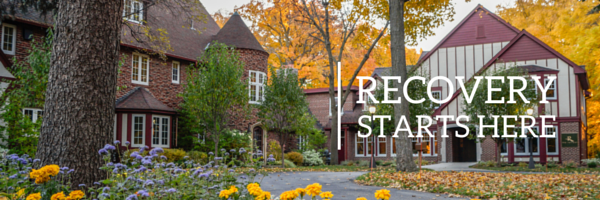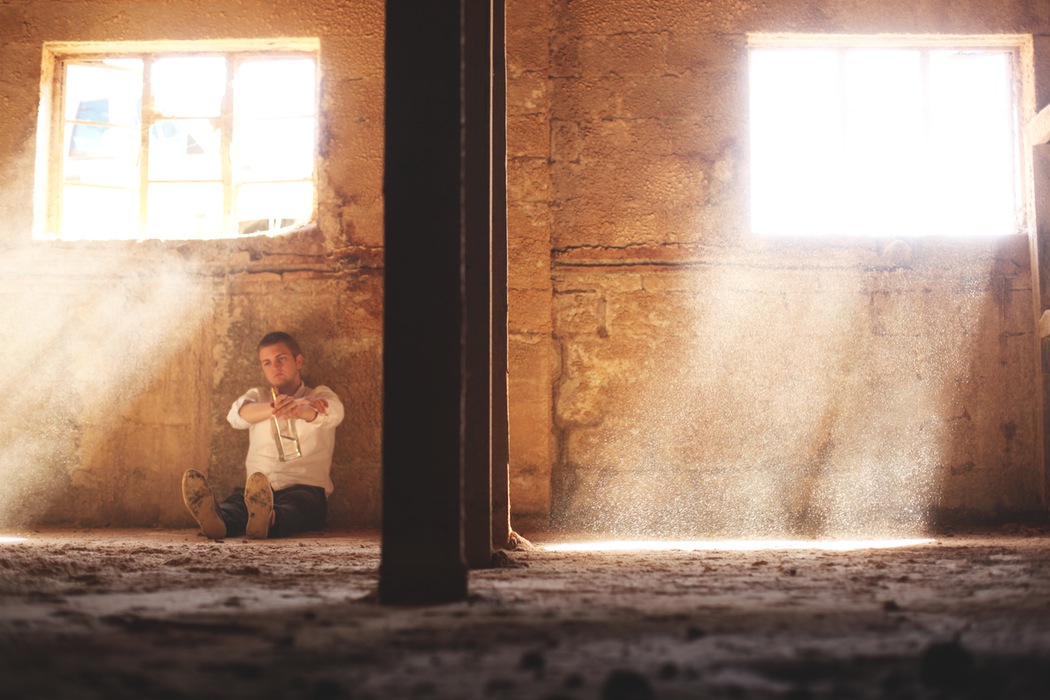Sobriety makes everything different, but it takes more than just the passage of sober days to bring about change. The idea behind my book, “Being Sober and Becoming Happy” is that first we take the Twelve Steps of Alcoholics Anonymous to get our drinking to stop. Then, if we keep taking those same Twelve Steps, in sobriety, and apply them to everything we do, we end up happy. I’ve had enough time to try this theory out, and to measure the results.
John MacDougall
His book, “Being Sober and Becoming Happy” is available from Amazon.com
Recent Posts
A Tale of Two Vacations
[fa icon="calendar'] Mar 23, 2016 9:29:34 AM / by John MacDougall posted in Alcoholics Anonymous, alcoholism, 12 steps of aa, Family Sober Support, Recovery Program
Acceptance is the Key to All My Problems Today
[fa icon="calendar'] Feb 24, 2016 9:32:10 AM / by John MacDougall posted in Alcoholics Anonymous, alcoholism, Recovery, 12 steps of aa, 12 Traditions Of AA
When I was drinking I was always angry about something. I just got off the phone with the new car dealer. I dropped off my new car to have a plastic sealer applied to it, because there wasn’t time to do it on Saturday when I bought it. The service manager called to say there was a tiny dent in the bottom of the door, which needed a paint touching up. He said I must have hit something with the door. I don’t think I did. I think the dent must have been there when I got the car and I just didn’t see it when I looked it over.
Loving or Wanting
[fa icon="calendar'] Jan 27, 2016 11:00:00 AM / by John MacDougall posted in family recovery, Family Sober Support
Beginning in fifth grade, I wanted a girlfriend. I wanted a girlfriend because I liked girls and was attracted to them. I wanted one the same way that I would want a car or a stereo, because I expected a girl to make me happy. Through my teenage years, my idea of an ideal girl was a combination of cheerleader, nurse, and cocktail waitress.
A New Year’s Resolution or A New Year’s Inventory
[fa icon="calendar'] Dec 31, 2015 10:30:00 AM / by John MacDougall posted in Alcoholics Anonymous, alcoholism, 12 steps of aa, AA Big Book, Chemical Dependency
We alcoholics tend to look down on New Year's Eve as “amateur night.” We often stay off the highways, believing them to be filled with dangerous, untrained, drinkers who have no tolerance for alcohol. We like to believe that when we drank and drove, we did it well. There is a little bit of truth in this, because we did develop a tolerance for alcohol, but mostly it is what the Big Book calls “gutter bravado.” Our tolerance just allowed us to drink more, and we were just as foolish as anyone else.
Merry Christmas... At Last
[fa icon="calendar'] Dec 23, 2015 9:30:00 AM / by John MacDougall posted in family recovery, alcoholism, Recovery, alcohol abuse, Chemical Dependency
This year, 2015, is the first year that I haven’t felt some generalized distress at Christmas time. It began when I was a child in a violent, alcoholic home. I almost always got hurt on the days leading up to Christmas. It would begin with the tree.
“I was never that good at being that bad.”
[fa icon="calendar'] Nov 25, 2015 1:17:18 PM / by John MacDougall posted in Alcoholics Anonymous, alcoholism, Recovery, AA meetings, Support Group
In the 1970’s and 1980’s, I attended open AA meetings for 13 years without figuring out that I was an alcoholic. This was odd, because I seemed to have a natural affinity for alcoholics and other addicts. As a pastor, I had conducted more interventions than anyone else in my town. Many evenings, I brought people to detox, and then sat up late at night learning about this disease. I taught college and graduate school courses on addiction without figuring out that I was an alcoholic and addict. I went to twelve step meetings because I really wanted to be with the people. My home group tolerated me well, because it was an open meeting. Occasionally I’d overhear someone whispering “He almost admitted it,” but I never did.
The High Bidder Vs. The Low Bidder - Sobriety Vs. Addiction
[fa icon="calendar'] Oct 28, 2015 9:00:00 AM / by John MacDougall posted in Recovery, 12 steps of aa, alcohol abuse, AA Big Book, Recovery Program

"I've got to stop auctioning myself off to the low bidder."
Coincidences are God's Way of Remaining Anonymous.
[fa icon="calendar'] Sep 23, 2015 9:30:00 AM / by John MacDougall posted in Alcoholics Anonymous, AA meetings, Men's Sober Residential, Women's Sober Residential, Recovery Program

Many of us begin our recovery as “functional agnostics”. That is, we may say we believe in a Higher Power, but we function as if we were on our own. It would be convenient if our Higher Power would show up and do something miraculous so that we could believe. It’s easy to assume that God, if there is one, should give us a “white light experience” so that we can believe.
Sometimes that happens. AA's co-founder, Bill W. had just such a miraculous experience. He had a sudden, overwhelming encounter with God, and did not doubt again. AA's other co-founder, Dr. Bob, had the educational variety of religious experience, in which he learned about his Higher Power over a period of time. This slower form is by far the most common in recovery.
One way to research whether there is an active Higher Power in our lives, is to begin looking for coincidences in recovery. Each of them could, by itself, be just a coincidence. As they pile up, however, we begin to detect the possibility that a Higher Power is at work in our lives. That possibility is scary. We wonder what this "Higher Power" might be up to next. In our anxiety, we sometimes drop the experiment. But when we keep it up, the coincidences reveal the guidance of the God of our understanding.
In treatment, or at The Retreat, we notice the way the “roommate from hell” turns into a lifetime friend; the way the assigned lecture or reading turns out to have just what we needed when we needed it; the way the unavailable sober house bed comes open just at the right time. When I married Priscilla thirty-nine years ago, we were so different that the minister who did the wedding began by saying "I never thought you two would go through with this." Over the years we really discovered how similar our childhoods and original families were, and how much we have in common inside. Of course, this could be just a coincidence.
On our honeymoon, we went off to a lonely corner of the Atlanta Airport between the two flights to our Florida destination, to have some quiet time together. A woman came up to us to ask if it was safe to fly. We told her that we were on our honeymoon, and if we thought it wasn't safe, we wouldn't go. It turns out she was on the run from an abusive husband, and was terrified both of flying and of going back to him. By coincidence, she was booked on our flight, and we rode with her to Florida. I think her Higher Power wanted her to fly to safety.
On my last afternoon working on a men's unit at Hazelden, after my work was done, I met a new patient who was lamenting that no one understood him or what his life was like. By coincidence, he was from a town I knew well. The counseling center he had been attending was set up in memory of my brother-in-law, who died of the consequences of alcoholism. We had a fine talk, he felt understood, and then I went home. His higher power and mine had given both of us a lift. Of course, It could have been just a coincidence.
Adopting Recovery to Keep on the Firing Line of Life.
[fa icon="calendar'] Aug 26, 2015 9:30:00 AM / by John MacDougall posted in alcoholism, Sober Housing, 12 steps of aa, AA Big Book, 12 Traditions Of AA
All of us, or nearly all of us, are sober when we read this essay. For us, getting sober is no longer the issue. Staying sober is. Alcoholism and addiction are chronic illnesses, and relapses are common. Staying clean and sober requires an ongoing participation in recovery. The best recovery is in Twelve Step programs. Meetings are good. Step work is better. Working with other alcoholics to help them get sober is best. A.A.’s “Big Book”says "Nothing will so much insure immunity from drinking as intensive work with other alcoholics. It works when other activities fail.” (p.89) I know that this is true for me.
What Is Spirituality?
[fa icon="calendar'] Jul 21, 2015 1:30:00 PM / by John MacDougall posted in Alcoholics Anonymous, alcoholism, Recovery, AA Big Book, Recovery Program











